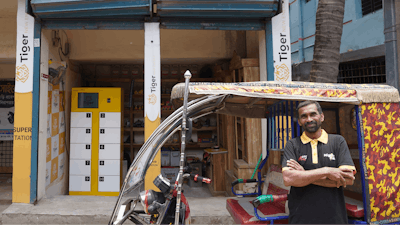
In the bustling streets of Bangladesh, where millions rely on three-wheelers daily, Tiger New Energy, a Bangladeshi clean energy startup, is setting a new standard in urban mobility with its innovative battery swapping technology.
ADB Ventures has provided the company with an additional $1 million in funding, augmenting the $2.5 million seed round led by Wavemaker Partners last year. The investment accelerates the deployment of Tiger's battery swapping network across Bangladesh, advancing its mission to promote eco-friendly mobility and deliver substantial socio-economic benefits.
Harvard Business School alumni Nicole Mao and Yiwei Zhu founded Tiger New Energy to address the pressing issues of carbon emissions and energy inefficiency that plague Bangladesh's urban transportation sector.
Approximately 4 million electric three-wheelers and vehicles transport over 112 million people daily across the country.
However, the use of low-quality lead-acid batteries, which only last 6 to 8 months, hinders these vital modes of transportation from being as efficient as necessary. The absence of adequate charging infrastructure compounds the problem, posing imminent safety threats, including the risk of fire accidents.
Tiger has introduced a network of stations where rickshaw drivers can swap their depleted batteries for fully charged ones in less than one minute compared to four hours previously. This dramatically reduces downtime and has been shown to amplify the earnings of rickshaw drivers by an impressive 60%, reinforcing the backbone of urban transport in Bangladesh.
Tiger's proprietary Offline Swapping and Reverse Charging features ensure service continuity during power outages, while its infrastructure doubles as Decentralized Energy Storage Systems (DESS), contributing to grid stability. Advanced thermal management and data-driven optimization algorithms further elevate the performance and lifespan of Tiger's lithium-ion batteries over traditional alternatives.
With this investment, Tiger plans to expand its network beyond 100 battery swapping stations to empower over 10,000 rickshaw drivers. The funds will also enhance talent acquisition, spur research and development, and facilitate the exploration of new regional markets. Tiger is actively forming strategic partnerships with leading EV manufacturers and energy providers to further its mission.






















